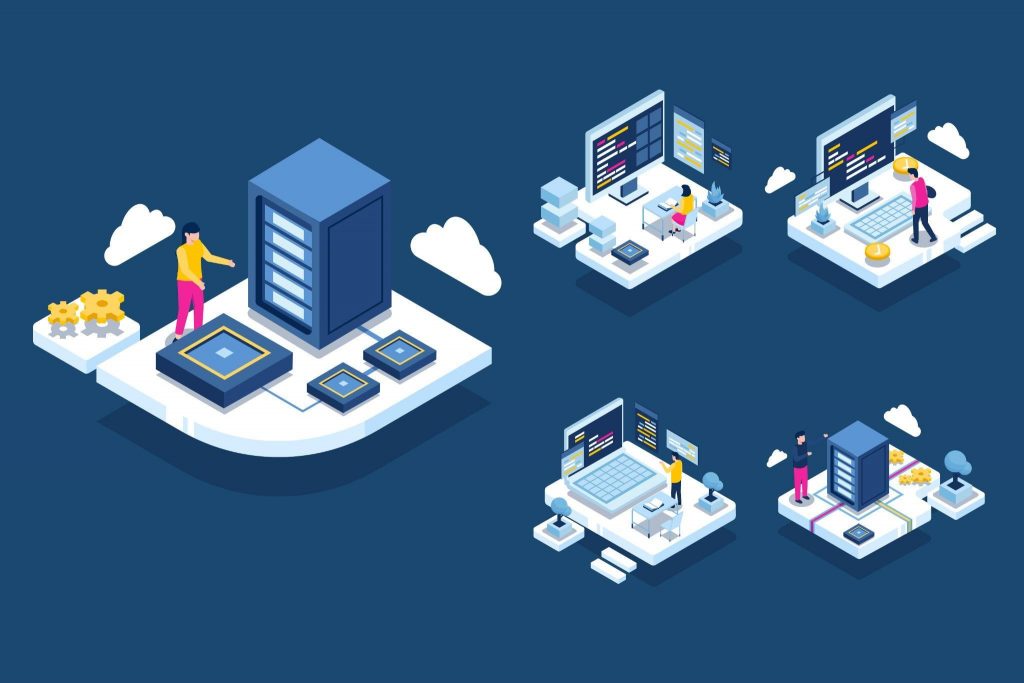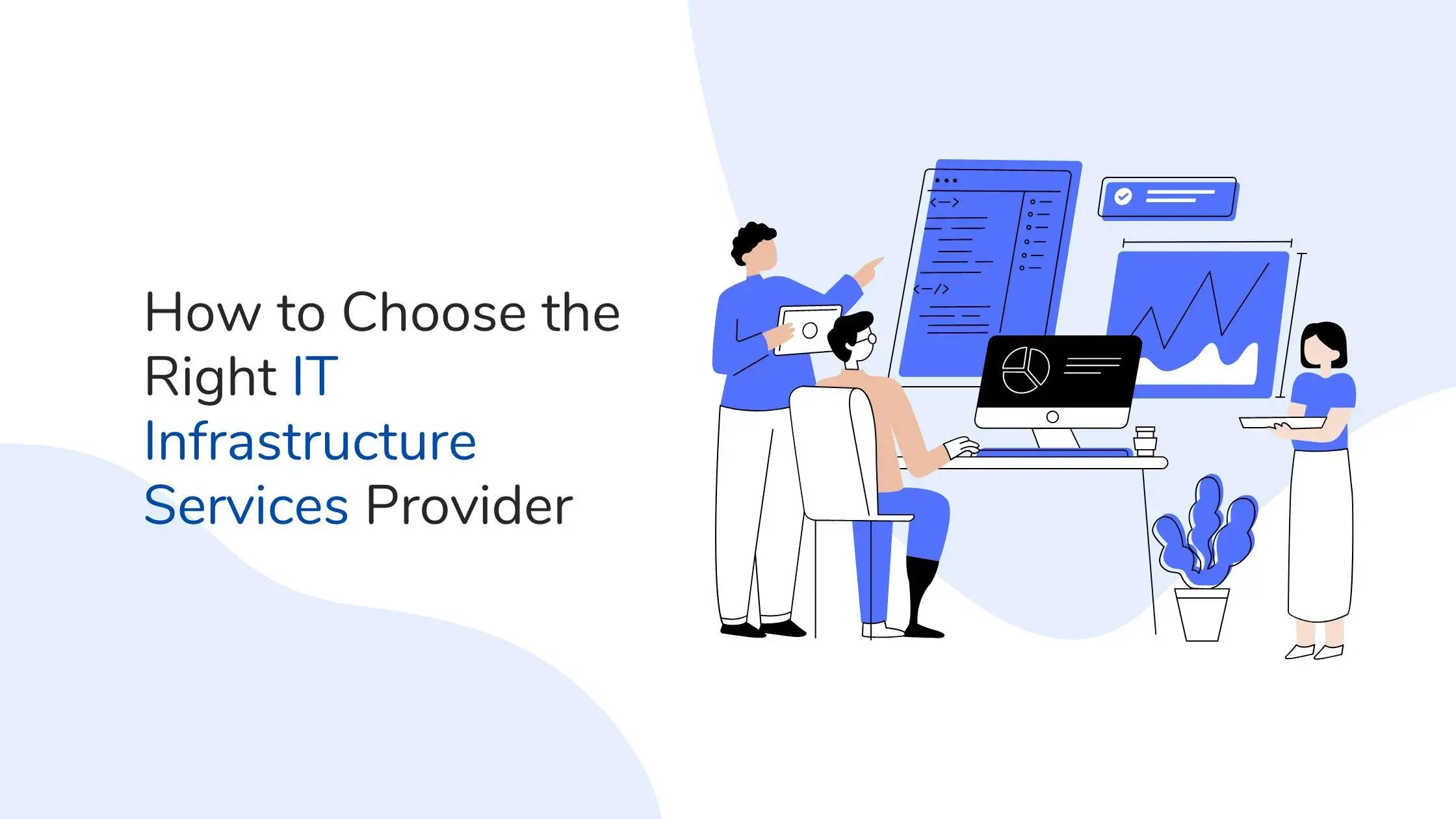
Freepik
As a small or medium-sized business owner, choosing your IT services provider is a decision that will have ongoing effects on the success rate for years. It’s essential to find someone who can offer what you need now and predict problems before they arise so we’ll be prepared with solutions down pat!
So how do you choose the best IT infrastructure services company? It’s not easy. Each one will claim to be comprehensive and responsive, with jargon just out of reach for most people or price pitches aimed at winning your business immediately without understanding what it takes until later when something goes wrong. After which they’re useless! The key to business strategy is clearly understanding needs before finding someone who can provide those specific solutions.
According to Statista, the global information technology (IT) industry is projected to see a 5% growth in 2021 and 4.45 trillion dollars by 2022, with IT playing an important role.
You can find the correct answers to all your questions about IT infrastructure services here. This article will help you find the best company for your brand so that it fits like a glove and starts running smoothly!
Factors To Look For in IT Infrastructure Management Services
1. High-end Security
To avoid being hacked, ensure the IT services provider you choose has a solid understanding of modern cybersecurity and how to protect your business from cyber threats. They should also prioritize safeguarding confidential data such as trade secrets or proprietary information so hackers cannot get their hands on it!
Your IT services provider should provide you with the best security solutions that block data intrusions immediately upon detection. These include simulated phishing attacks, DNS protection, and web content filtering to eliminate the intrusion of infringing technologies such as POS (Point-Of-Sale systems) or network vulnerability before entering your system.

Freepik
Ask about their compliance security standards, primarily if you work in an industry regulated by the government. The right company will have everything they need for security and won’t let anything slip past!
2. Past Clients’ Testimonials & Reviews
Peek behind the curtain, and you’ll find out what service provider your company is getting. If it’s notifiable, then the chances are that they won’t be able to provide all their clients with IT support services as well—so make sure this doesn’t happen by looking at previous projects or asking for references from people who have worked with them in the past.
The right IT services provider is essential for your business. So before you choose one, research and find out which ones have experience working with the industry that represents what you want them to help accomplish.
3. What is the Typical Response Time?
Sometimes, companies will guarantee the response time of their services. However, it’s essential to know that this is an unrealistic expectation and can lead you down a path where other problems arise from not being able to communicate effectively with your team or client base about issues occurring in real-time as they happen (which could be flooding the customers). It’s best if there was some sort of communications plan set beforehand so everyone knows what kind/level communication system works well for each party involved.
Communicate your expectations to the provider from day one. Even if you have excellent IT infrastructure consulting services, they won’t be able to read minds and know what’s best for everyone in every situation, so it pays off by being upfront about needs early on.
4. Scalability
Your IT services should be able to grow and evolve with your company. A good provider will provide you at first and continue providing overtime as needed by the changing needs of both parties involved in this contract agreement- not just one side or another.
The IT services provider should be able to help you scale and deliver the scalable architecture. So choose an ITP who can continue providing the right solution as the business grows and its goals change.
5. Incessant Availability
You should be able to get round-the-hour IT services from your provider. They’ll watch over the integrity of all systems and provide 24/7 proactive monitoring capabilities, so you don’t have any problems with them in between shifts.

Freepik
Maintaining an impeccable record when it comes down to deciding hiring practices is critical for many businesses, particularly those that deal heavily online, where even minutes can make a difference on whether or not something gets done right away due to its high customer numbering rate compared to other mediums such as telephone calls which only require one party at a time.
IT disasters happen when companies do not have access to their IT provider. Your 24/7 service availability and quick responsiveness will help you avoid this from happening! You should be able to reach out through chat, call or email for instant support in case of an emergency with your company’s technology infrastructures.
6. Understanding the Billing Structure
The best way to ensure you’re getting your money’s worth from an IT services provider is by understanding the billing structure. Make sure they explain how much it’ll cost for each service and whether or not there are any hidden fees involved in using those items, too! You should also negotiate rates with them if necessary so that nothing goes unnoticed during negotiations.
7. Responsive Service Level Agreement (SLA)

Freepik
If you want to ensure that your IT services provider is held accountable for the delivery of their work, then they must have an SLA. The service level agreement creates transparency and establishes mutually agreed-upon standards in quality with scope responsibilities and expected time frames – all through a written contract! Make sure this term isn’t too broad because what happens if there aren’t any guidelines or limits set forth by these terms?
You’re left without anything except vague promises from each party which could lead to some frustrating experiences down the road. So make sure things like response times remain concrete throughout every part.
8. Team’s Skillset
Hiring the right IT services provider is important because they can help you identify your skill gaps and deliver a work scope that exceeds what an internal team could do. You should look for companies that offer troubleshooting, networking software maintenance, hardware maintenance, and other specialized skills such as data center service management or security audits.
Final Note
IT services companies can enhance operational efficiency and help you grow your business with expert support. They also monitor the systems for security, provide the best architectural solutions, and ensure that they are up-to-date to avoid any potential vulnerabilities or hackers who may want access to the valuable information stored on them! With so many great options available, it’s easy finding an appropriate company based on what matters most, like how well they meet specific needs and expectations across multiple platforms.
Trust is the most important aspect when working with a virtual CIO, and you should always start there. You will have many critical decisions, but both parties must be on board for any progress or success from these talks.
Need around-the-clock support to build your desired IT project/software? Give us a quick call to know our exceptional industry expertise in providing IT Solutions.
Frequently Asked Questions
1. What is an IT infrastructure service?
Information technology infrastructure can be defined as a set of components that make up the foundation for an IT service. This might include physical hardware like computers and networking capabilities and cloud services, but it also includes various software packages in use at different levels within your organization’s system.
2. What are the services of IT infrastructure?
The IT Infrastructure Management Services (IMS) is about managing technology, information, and data. Its scope ranges from desktop to networking storage services such as enterprise-level databases or even your office printer; it also takes care of security measures like firewalls that keep hackers out.
Oviya is an experienced technical writer at Squash Apps. She has hailed from Coimbatore, who is a Literature graduate & fond of penning words that fall right into the contexts! She is a Numismatist, Potterwala, Blogger & has an interest in stories that make a difference in the world! Find me on Linked In!


